On January 24, 2020, the Commission issued Opinion No. 554-A, its Order On Rehearing, Directing Briefs, And Accepting In Part And Rejecting In Part Compliance Filings in this proceeding. The Commission arbitrarily and capriciously ruled that Potomac-Appalachian Transmission Highline (“PATH”) should re-recover its costs for its civic and political expenditures and General Advertising, completely reversing and contradicting its own
findings in Opinion No. 554 issued on January 19, 2017, and in violation of PATH’s approved
Formula Rate. Opinion No. 554-A erroneously interprets the Commission’s existing accounting regulations, specifically exempting PATH’s expenses from Account 426.4 based on unstated and unwritten requirements, and introduces regulatory uncertainty. It also unduly intrudes into state jurisdiction by encouraging transmission owners to compromise the integrity of the state regulatory process at ratepayer expense. Opinion 554-A is based on substantial legal error, not supported by substantial record evidence, and is not the product of reasoned decision making for benefit of the ratepayers that the Commission serves. The Opinion is an extremely belated action that harms consumers and can only be deemed arbitrary and capricious and not the product of reasoned decision-making.
The Commission issued a well-reasoned and well-supported accounting determination in this proceeding in 2017. It followed that Opinion with further written guidance on calculating refunds (even going so far as to create spreadsheets for PATH to fill out), and an additional Order on compliance filings that required PATH to make additional refunds of advertising costs, or explain them in accordance with its Formula Rate. We note that the three Commissioners sitting today concurred in that Order. The refunds have been accomplished and the matter was headed for closure. If the Commission had concerns about its Opinion No. 554, it was not
evident during that time period. The Commission spent plenty of time making sure the refunds ordered were carried out, but could not find the time to consider PATH’s Request for Rehearing until after the refunds were accomplished.
What changed? The expenditures did not change. The Commission’s accounting regulations did not change. The Commission’s precedent did not change. The Commission’s
opinion is the only thing that changed. The Commission did not choose to clarify its previous opinion. It did not choose to modify its previous opinion. It did not choose to change its regulations to effect new policy in a separate proceeding. It chose to completely flip-flop on its prior opinion in a poorly supported new opinion, reverse its findings, and deem the expenditures recoverable using arguments and precedent that it initially rejected in Opinion No. 554. This is the epitome of an arbitrary and capricious action. The Commission appears to be fighting itself
here, not making well-reasoned decisions in the interest of the consumers it serves.
Therefore, in accordance with Rule 713 of the Commission’s Rules of Practice and Procedure, 18 C.F.R. § 385.713 (2016), Keryn Newman and Alison Haverty, parties pro se, submit this Request for Rehearing. The Commission should reverse Opinion No. 554-A and restore its findings in Opinion No. 554, approve compliance filings for amounts already refunded to ratepayers, and reestablish the regulatory certainty it once provided to the entities it regulates through long-standing precedent and guidance provided by its accounting regulations.
We began by wondering what had changed in the intervening years between Opinion No. 554 and Opinion No. 554-A. The only answer we can find is a clear instance of confirmation
bias where limited examination of the record, regulations, and precedent was performed to
support granting PATH’s Request for Rehearing. It’s almost like the Commission made the decision to grant PATH’s request in isolation, and then went on a futile search to find (or simply invent) support for its decision later. Opinion No. 554-A is an arbitrary and capricious decision by the Commission, completely unhinged from evidence, regulations, or precedent. This is a hallmark of a captured regulatory agency making arbitrary decisions in favor of those it regulates, and not based upon an impartial evaluation of the law for the benefit of the consumers it exists to serve. This is not regulation in the public interest.
We hereby request that the Commission set this matter for rehearing and restore its findings made in Opinion No. 554.
|
That's the beginning and the end. Want to read what came in between? You can read the entire filing here.
0 Comments
The legislative battle over eminent domain for private purpose projects continues to rage in Missouri. There are several months left in the legislative session, and the battle is already half over, with the House overwhelmingly supporting new legislation to prohibit the use of eminent domain for merchant transmission projects. Now all eyes are on the Senate, and the people of Missouri will support this legislation wholeheartedly. Fantastically well-written op eds are appearing in Missouri news outlets from Missouri Farm Bureau. I particularly love Eric Bohl's comparison of GBE to a private purpose toll road. It is a must read! Imagine if Warren Buffett wanted to build a private toll road across northern Missouri. The billionaire would charge cars $100 apiece to race from his home city of Omaha, Nebraska, to Nashville, Tennessee, pocketing a huge chunk of profit on each trip. He might call it the “Music City Express.” Unfortunately, the toll road would have no exits in Missouri. Cars could only get on in Nebraska and exit in Tennessee. No local residents could use it at all. And there's lots more, particularly about GBE (or Buffett) tossing money at cities in another part of the state in order to create a false "need" to toss the northern part of the state under the bus in order to benefit cities in the southern part. You've got to read it! Another fabulous op ed written by Blake Hurst is appearing in the St. Louis Post-Dispatch. You can read that one here. Hurst makes a very important point: The promotional literature for the company touts the project as a “free market solution to meet the growing demand for sustainable energy.” Well, there is nothing in a “free market” that gives entities the right to condemn property owned by the residents of Missouri and taking it for a private business. The benefits of using eminent domain for GBE go into the Chicago-based pockets of Invenergy CEO Michael Polsky. They don't go to electric customers in Missouri. Even the pie-in-the-sky savings of $12M in electric costs each year aren't drawn from eminent domain savings. The Cities will save money either way because their contract price will not change if eminent domain is used. They would still get the "benefit" if eminent domain for GBE is prohibited by law. And then Hurst absolutely nails exactly what I was thinking after reading American Wind Energy Association's breathy, disconnected push for GBE that absolutely fails to resonate with Missourians. Tom Kiernan, writing in favor of the project in the Feb. 12 Post-Dispatch, has made it clear that the project, part of a multi-state effort known as the Grain Belt Express, would be “difficult” to complete without eminent domain. But his op-ed piece seemed designed to avoid actually mentioning the words “eminent domain.” Why did he fail to mention the central issue driving this controversy? I dunno. Maybe he thinks the people of Missouri lack the gray matter necessary to make their own decisions about their own property? How does anyone discuss GBE and completely avoid the words "eminent domain?" It seems that Invenergy is fighting a losing battle. Limiting the use of eminent domain is something every voter can support. The only ones who seem to like it are the ones who think they can profit from its use. And, hey, there's that broadband thing. Just a couple more cheap trinkets for the natives. Hurst says: As the Missouri Legislature enters its third year of debate over the project, Clean Line’s backers have started talking about fiber optics as well. Not only will electricity consumers receive a bonanza, but everybody in north Missouri will be able to watch Netflix. And be sure to tune into This Week in Missouri Politics on Sunday, where you can hear more from Farm Bureau and the legislators involved in this important issue.
Maybe you'll even be inspired to write your own op ed? So, Transource held a little meet-n-greet for potential contractors to build its transmission line last night. No, the project has not been approved. It's still in hearings at the state utility commissions and nothing will be decided until probably at least this summer. But, yet, they had the audacity to hire a general contractor and then hold a party for subcontractors to schmooze it up with the guys holding the bags of money (of course, it's YOUR money, consumers). And then this happened. A meet-and-greet for potential contractors for the Independence Energy Connection drew about as many protesters as it did interested contractors Thursday night at the Clarion Inn and Suites in Chambersburg. Beautifully executed, Stop Transource Franklin County! You all won the night! The opponents completely changed the tone of the news story that Transource hoped would happen. Instead of it being a one-sided piece about Transource and its project, it ended up being a balanced piece that put the story of the opponents first. That's how media is done!
These folks are not done fighting, and Transource's project is on shakier ground than ever. It's still being hotly opposed at both the Maryland and Pennsylvania utility commissions by the state consumer advocates. The project is not a good deal for the ratepayers the advocates represent. PJM is still playing games with the project's benefit/cost ratio, now refusing to provide a clear picture of the Transource project with the other improvements PJM has approved. Those other existing transmission rebuilds will solve any problems on their own, and once they happen, the benefits from Transource will be greatly reduced. So why should ratepayers pay nearly a billion dollars for a transmission project that has little benefit? They shouldn't. It's also still being opposed by the citizens of Franklin County. Keep fighting Franklin County! I haven't had this kind of fun since September 16, 2010. Bravo!!! Lollipops... cherry pie... ice cream... treacle tarts... broadband... ALL FREE TODAY! Today, Invenergy's Grain Belt Express announced its plans to include broadband capability on the project infrastructure at no additional cost to Missouri communities or taxpayers.
So, hey, guess what? Missouri communities and taxpayers won't have to pay to build it but they will have to pay to use it. There ain't no such thing as a free lunch... or lollipop... or broadband. Discussions are underway with Missouri internet service providers who could use the infrastructure to provide internet for nearly 1 million underserved Missourians. Yes, they could use it, once they pay Grain Belt Express a fee for the service. And then they'll charge end users a fee to use it as well. Invenergy will seek permission from landowners to consolidate this infrastructure in project easements along the Missouri Public Service Commission approved route. Ya mean when they take the property using eminent domain, now extended for the use of broadband, too? Does this mean that anyone who wants to build broadband in Missouri can use eminent domain just like Invenergy? I'm gonna spare you the rest of the garbage about how wonderful Invenergy thinks they are and how much they just love, love, love you and your community! I simply can't type when I'm retching. If you see the Child Catcher in your neighborhood, it is recommended that you hide in your basement and don't come out, no matter how delicious the free treats are today. You don't want to end up in his cage. There's a new tool in the tool box, transmission opponents! The people of Maine have refused to accept the political approval of the New England Clean Energy Connect transmission project by unelected bureaucrats. And they did something about it! Yesterday, a grassroots citizens group, No CMP Corridor, delivered more than 75,000 signatures to the Secretary of State on a petition to invalidate the Maine Public Utility Commission's approval of the transmission project through referendum. Now the proposal will be voted upon by the people of Maine when placed on the ballot in November, 2020. If it passes, goodbye NECEC! This issue is going to be decided by the people, not politically by unelected bureaucrats. This represents an awesome effort by a grassroots group opposed to the transmission line. In order to place a referendum on the ballot, the group was required to collect more than 63,000 signatures in just a few short months. THEY DID IT! This demonstrates enormous citizen dissatisfaction with Central Maine Power, a once local utility that is now owned by a foreign corporation. CMP has been embroiled in a billing fiasco that overcharged customers over the past several years, at the same time it has been trying to pull off the approvals necessary to build the NECEC. The transmission project is for the purpose of connecting existing hydroelectric generators in Canada with utility customers in Massachusetts. Massachusetts sought "cleaner" generation to meet a state mandate. Massachusetts wants cleaner power, but it doesn't want to make a sacrifice to get it. Instead, it first proposed new transmission through New Hampshire to make the connection, but that proposal was not approved by New Hampshire. Next, it considered the CMP proposal to use Maine as its doormat, running a new line through that state's last remaining wilderness. The people of Maine don't like it anymore than the people of New Hampshire did. You wouldn't like it either if someone in another state wanted to trash your place to hook up their designer "clean" energy for the purpose of virtue signalling. It's hypocritical, at best, for Massachusetts to pretend they are helping the environment in their own state by destroying the environment in another. Over the past several years, No CMP Corridor has built an amazing citizen army, and they're not backing down. In fact, they're taking action! After the Maine PUC approved the project at the behest of the Governor in the wake of a $258M payoff of gewgaws for the state, the citizens went to their legislature to pass new laws to slow down the project and give the people a voice in their own destiny. Although the legislation passed, the Governor vetoed it. I guess this was supposed to discourage and stop the opposition. But it didn't. It only made them stronger and more determined. Hats off to these strong and resolute citizens! They succeeded in doing something amazing! Now that they have met (even exceeded) their petition signature goal, the Secretary of State must verify the signatures. CMP says they will be watching this process very closely. Let's hope they keep their dirty fingers out of it. The signatures have already been verified by the localities as belonging to registered voters. What's left for the Secretary of State and CMP to complain about? CMP now threatens that it's going to begin construction of the project "this spring" after receiving the rest of its outstanding permits. Sounds like an empty threat to me. Permits never happen when a utility expects. There are always unforeseen delays. And it would be extremely unwise for the remaining permitting agencies to approve construction that may come to a screeching halt in November if the referendum passes. Would the agencies be putting themselves in a position to be sued for damages by CMP for giving them the go-ahead when this referendum is looming? For its part, CMP's chest-beating is about the most imprudent thing it could do. NECEC is a merchant transmission project. If they don't deliver to Massachusetts, they collect zero. Their investment would end up here. And when is Massachusetts going to wake up to the fact that this project isn't happening anymore than the first proposal in New Hampshire? Someone in Massachusetts needs to put on their thinking cap and find a better solution to their "clean" energy needs.
The big energy interests are falling all over themselves now that the citizens have found a way to thwart them. The energy firms and political interests thought they had set themselves up in a never-fail world, where political pressure and lots of cash would guarantee them the ability to run over the common people. That world is now dead. Dead! But still they arch their backs and hiss like they have a natural right to power over people. In actuality, they're probably soiling themselves while trying to desperately devise some new way to overthrow the will of the citizens. No longer are transmission opponents the meek victims of a state's very political transmission permitting process. They have the power to overturn it through referendum, and the people of Maine have proven that it can be done! Keep your eye on this exciting new tool and cheer these brave, determined folks on as they walk the path to victory! Word is that the Missouri Senate Commerce, Consumer Protection, Energy and the Environment Committee voted the Senate's version of the eminent domain bill out of committee this afternoon by a vote of 6-5.
The bill, SB597 sponsored by Senator Brown, is identical to HB2033 that was passed by the Missouri House of Representatives earlier this week. This is good news! Hopefully the bill will be on the Senate floor soon for debate and vote. Many thanks to all the committee members who supported this bill, especially Senator Riddle who stood strong for her constituents today! This is Howard Cosell, signing off... until the next big game! The more desperate someone becomes, the further their arguments stray from the truth. When the truth isn't working, the message gets embellished. You'd think all Missourians were head over heels for Grain Belt Express after reading this. ...a project that will benefit so many small rural communities and save Missourians millions of dollars... It's also a project that will destroy so many family farms and the rural economies they support. Lower yields and higher costs to farm mean less income for farmers. Less income for farmers equals less they have to put back into the agricultural economy in their own communities. Not every rural community would "benefit" equally. And let's talk about all those amazing savings, shall we? Missourians do not like living paycheck to paycheck paying high utility bills and soon many won’t have to. The Grain Belt Express Transmission Line will lower the cost of utility bills to dozens of communities throughout the state. Oh, c'mon! This guy has no idea what it's like living paycheck to paycheck if he thinks that saving the price of a cup of coffee on your monthly electric bill will lift you into economic prosperity. I think maybe he's spreading it on a little thick. What are the savings? And how accurate are they anymore? How much is waiting around for GBE to be built costing municipal electricity customers? The amazing savings claim is overblown. I'm guessing this fella hasn't looked at the MJMEUC contract, or GBE's filings at the PSC. In Missouri, the line will span eight counties delivering at least 500 megawatts of low-cost energy (and probably much more). GBE said it would make available 500 MW, a very small percentage of its 3,500 MW capacity. MJMEUC only agreed to purchase up to 200 MW of the 500 offered. The other 300 MW is going stale on the shelf because no one in Missouri wants to buy it. Get it? There's no need for GBE in Missouri! If it was needed, there would be buyers willing to pay for it. And then there's all the jobs blather. I'm sorry, but creating jobs is not a "public use" granted eminent domain authority. No one's right to have a job trumps another's right to own and enjoy property. We're currently experiencing a booming economy. Unemployment is at record lows. Justifying the use of eminent domain for some jacked up number of temporary jobs for workers from other areas completely falls flat. But this... this is the ultimate piece of work... In recent years, special interest groups have gathered in Jefferson City with the goal of preventing the project from moving forward. This legislative session, these special interest groups are at it once again, introducing legislation to block the project and hinder Missourians in rural communities, suburbs, and across our state. Is your land a "special interest?" Calling landowners, voters, citizens, engaged in a grassroots effort to protect their homes, businesses, and way of life "special interest groups" is the ultimate insult. These are honest, hardworking people defending the taking of what's theirs from out-of-state "special interest group" Invenergy, who is seeking to make money from the taking. The only "special interest groups" here are Invenergy, and a handful of municipalities who have bellied up to the buffet to gorge themselves on the loss of others. (Except, hey, check the menu... it's really just granola bars and water, not the feast they promised you.) I think it's Grain Belt Express that is "hindering Missourians in rural communities" across the state. Landowners have been held in limbo for a decade while first Clean Line bumbled its way through years of unsuccessful permitting, and now Invenergy comes after them, even though it doesn't have enough customers to make the project economically feasible. How many sleepless nights will the landowners endure while out-of-state corporations play their corporate money-making games? How much of the landowners' hard-earned income is being siphoned away in an effort to protect their rights? Landowners didn't ask for this, and to continue to hold them hostage while Invenergy plays energy games is shameful. Let Invenergy play its games in a free market where no one is held hostage! Invenergy could build its project underground, on existing rights-of-way, and not bother anyone, but it doesn't want to. It must believe Missouri is its doormat, as much as the author of this op ed seems to. When other Clean Line projects were defeated, better projects emerged. Buried transmission on existing rights-of-way is really happening! If this guy really cared about Missouri, he'd drop GBE like a hot potato and look to the future where a project that does no harm will emerge. Is this guy convincing anyone with his pie-in-the sky, exaggerated claims of how wonderful GBE would be for Missouri? Not me. But, hey, there's one point where I can agree with him! I encourage everyone who wants to see their family and neighbors benefit from this project to contact your legislator. As a constituent, taxpayer, and Missourian, your voice matters. The only way anyone is going to benefit from this project is by leaving it in the dust and moving on to better ideas. Contact your Senators, because your voice matters! A quick email or phone call is all it takes! Do it today!
Congratulations, Missouri! This evening, the House of Representatives voted overwhelmingly in favor of HB 2033 that would prohibit the use of eminent domain by merchant transmission developers! The bill is now on to the Senate. Stay tuned for ways you can help ensure this very important new law is put into place. But what about Invenergy? Caveat Emptor, fellas! You bought a used transmission project with a host of problems. It's not just a little dog-eared, it's rode hard through a briar patch with stones in its shoes and put away wet lame. The people of Missouri have spoken through their elected representatives. I think the message is loud and clear. NO NEED, NO GAIN, NO EMINENT DOMAIN!
"Americans for a Clean Energy Grid" is the work of big green dark money. Use of the word "Americans" in its name connotes the image of patriotic citizen masses engaged in an effort to build a "clean energy grid", aka trillions of dollars of big, ugly, new electric transmission lines. However, like most astroturf front groups, that's not reality. Its members are corporations who would profit from building new transmission, and the big green groups who like to pretend it's all about saving the planet. Toss in a little political theater, and it's just like any other front group... a corporate effort to appear as grassroots. I could write a whole bunch about these pretenders, but that's not what this post is about... The pretenders hold amusing webinars now and then and engage in political efforts to further their goals. One such webinar was reported in RTO Insider recently as a "celebration" of 20 years of regional transmission organizations. To make their "celebration" more authentic, they hired some former FERC Commissioners to make comments during the webinar. And we're all supposed to I wonder if there was cake? Champagne? Party favors? Apparently, the party got so lit that the guests started celebrating an idea to lobby Congress to give transmission siting and permitting authority to FERC. Former Chair Jon Wellinghoff (2009-13) said Congress, which gave FERC authority to enforce mandatory reliability standards in 2005, should now give the commission the power to create a national transmission policy to move renewable power to load centers. It's all fun and games until video surfaces of a reveler dancing around with a lampshade on their head... Transmission siting and permitting is state jurisdictional. That is, only states may site and permit new electric transmission. FERC's current authority only covers transmission rates, and overseeing the regional transmission organizations who order new transmission. States still have the final say over whether new transmission may be built within their borders. It's not like Welllinghoff didn't try to change that during his tenure, though he was ultimately unsuccessful. (Wow, deja vu... that blog written 9 years ago has striking relevance for today. I must be ahead of my time.) Congress has wisely preferred to leave that authority with the states. And then former Commissioner Pat Wood piped up to make sure their scheme was clear, Wood said he’d like to see Congress give FERC “backstop” transmission siting authority, which the commission could use as a “hammer to get people to the [negotiating] table” on interregional transmission needed to deliver renewable power. Hammer? New authority for FERC to "backstop" state transmission permitting and siting is intended to be a hammer? A hammer is a weapon, and holding a weapon changes the dynamic to one of coercion, or just plain old preemption. "Do what we say or we'll beat you down with our hammer!" In this scenario, if states don't knuckle under and site and permit new transmission, FERC would do it for them. What's the point of states having authority to site and permit if they are usurped by FERC? This scheme failed the first time FERC tried it, using "backstop" authority granted in Sec. 1221 of the Energy Policy Act of 2005. A federal court ruled that backstop authority could not be used to overrule a state decision to deny a permit to new transmission within one year. The only use for "backstop" power would be if a state could not issue a permit within one year, or choose not to consider the matter. A state denial ends the application process and nullifies any "backstop" authority. The court said that if a state considered a permit under state law and denied the permit within one year, there was no "backstop" authority that could overrule a state. So, what makes these chuckleheads believe that they wouldn't get a similar result with new "backstop" authority? It looks like they just want to remove state authority altogether and allow the federal government to make decisions on transmission at a national level. If that happens, flyover states would be helpless ground zero for new transmission that does not benefit them in any way. Essentially, they would be doormats for the wants and needs of other states, who maybe don't want to look at energy infrastructure in their own neighborhood, but sacrifice other areas for their own use. Of course, this is unlikely to happen. Even the moderator admitted as much. Moderator Rob Gramlich: Like this? Electric transmission is not a warm and fuzzy thing. Federal preemption of state authority isn't a cute teddy bear. Any attempt to make it so will be met with swift, strong, and outspoken opposition from the thousands of actual Americans who oppose new transmission to serve the selfish wants of others with no skin in the game.
This isn't 2005. We're fully woke now and we're watching you... I first heard about the PATH Transmission project in the summer of 2008. It was a horrible, unneeded idea that eventually met its fate, shelved in 2011 and cancelled for good in 2012. Many considered that the end of the PATH project.
But it wasn't. A formal complaint about PATH's rates had been filed at the Federal Energy Regulatory Commission in January, 2011. I chose to stick with that complaint, even when PATH was no longer a threat. It's been a lot of work over the past nine years, coming in fits and starts. We prevailed on our complaint, and PATH was ordered in 2017 to refund more than seven million dollars, plus interest and undue return it had collected for its extensive public relations campaign and lobbying carried out for the purpose of influencing the decisions of public officials considering the project's applications. The correct precedent was set, and utilities under FERC's rate setting jurisdiction may no longer collect these kinds of costs from ratepayers. Done! But, not really. Several more orders were issued since then, correcting PATH's refund filings. Even though ratepayers officially paid off all the PATH debt in 2017, PATH has still managed to collect several million dollars a year from ratepayers while it bumbled its way through the FERC Orders and made required compliance filings. I continued to keep an eye on what was transpiring. Sometimes the kids get out of control if they don't have a babysitter. The twice-yearly rate filing phone meetings and data requests continued. And how much fun were those? Not much fun at all. I'm seriously over it. Twelve years after PATH began collecting its costs through rate filings at FERC, it's time to put this thing to bed. For good! We've all got other things to do. So, is it January again? It seems like a lot of the PATH things happen at FERC in January. New year, out with the old. Yesterday, FERC issued its agenda for its January, 2020, public meeting. PATH is on it. All of the open PATH matters are on it. They'll be settled one way or the other next Thursday. Nobody knows what to expect until the order is issued. But the fact that it ended up, once again, on a monthly meeting agenda indicates that the Commission sees some value in making this order more visible. The Commission issues orders every day, but only a handful are significant enough to end up on the monthly agenda, delivered before an audience in Hearing Room 1. I can't wait! No matter what happens, I'm am truly thrilled to put PATH behind me, for good! FERC gets a lot of rancor from the public and the industries it regulates. But, in this instance, FERC has done an outstanding job sorting through everything and meting out justice. The FERC employees I interacted with during this case have been fair, considerate, and dedicated. I had a great experience at FERC. I have faith that FERC works for for the citizens it serves. Twelve years... the lingering life of a transmission proposal that was concocted in haste... and repented at leisure. The ratepayer gravy train will now finally grind to a halt. |
About the Author Keryn Newman blogs here at StopPATH WV about energy issues, transmission policy, misguided regulation, our greedy energy companies and their corporate spin.
In 2008, AEP & Allegheny Energy's PATH joint venture used their transmission line routing etch-a-sketch to draw a 765kV line across the street from her house. Oooops! And the rest is history. About
|
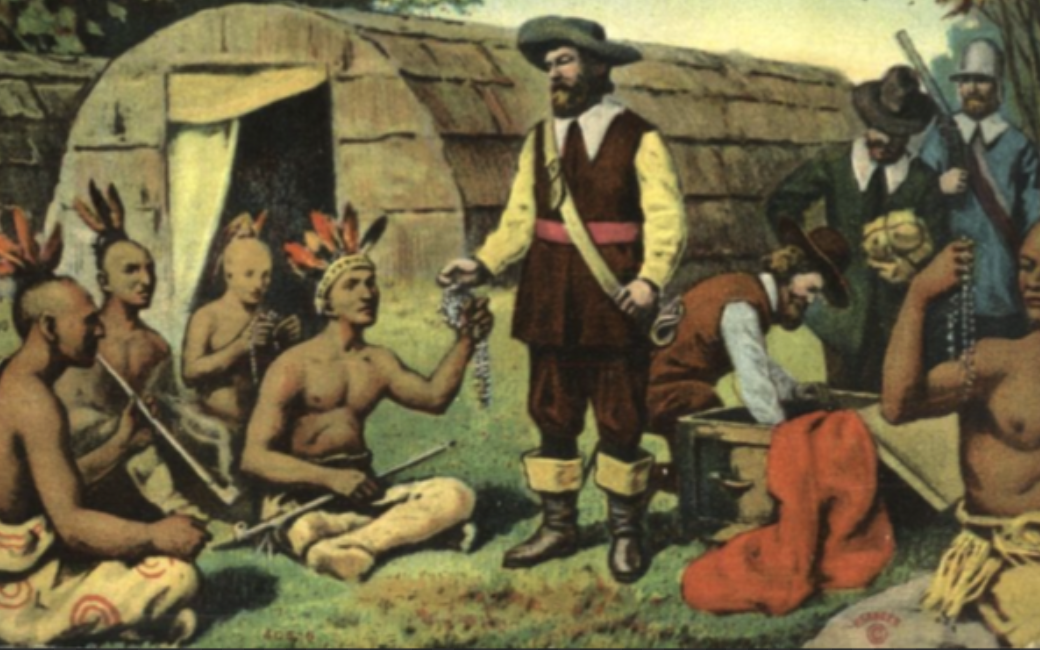
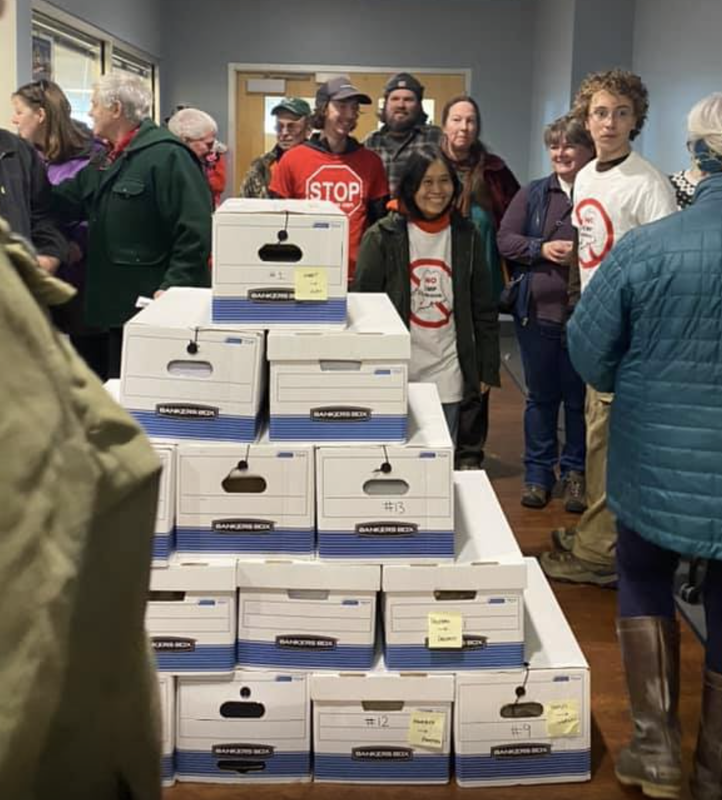

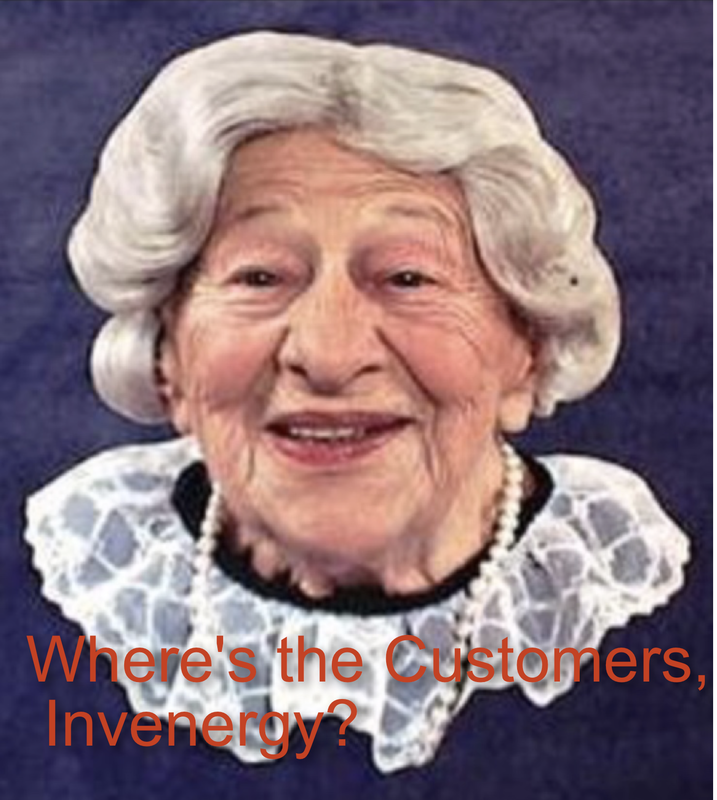
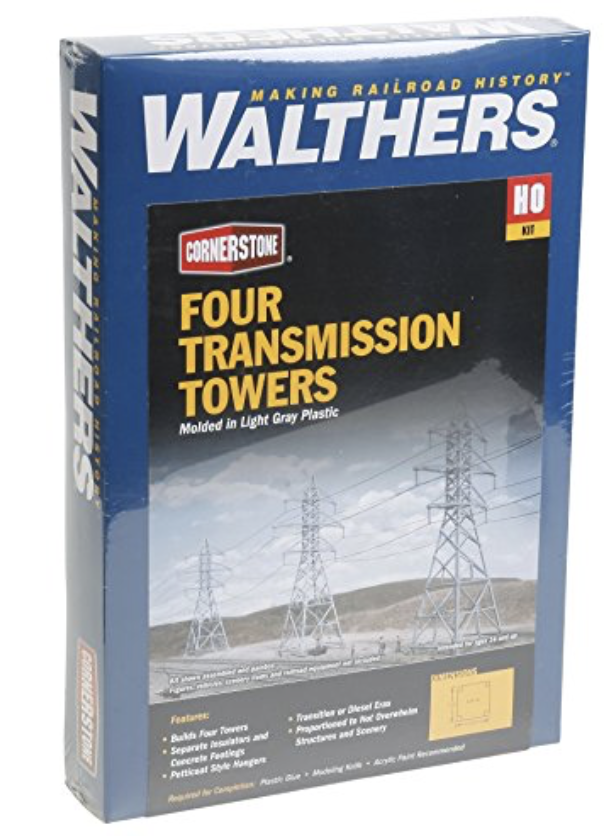
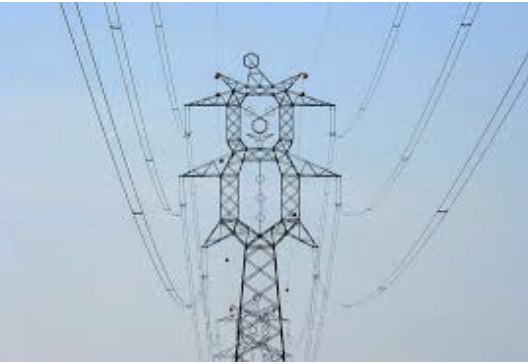
 RSS Feed
RSS Feed